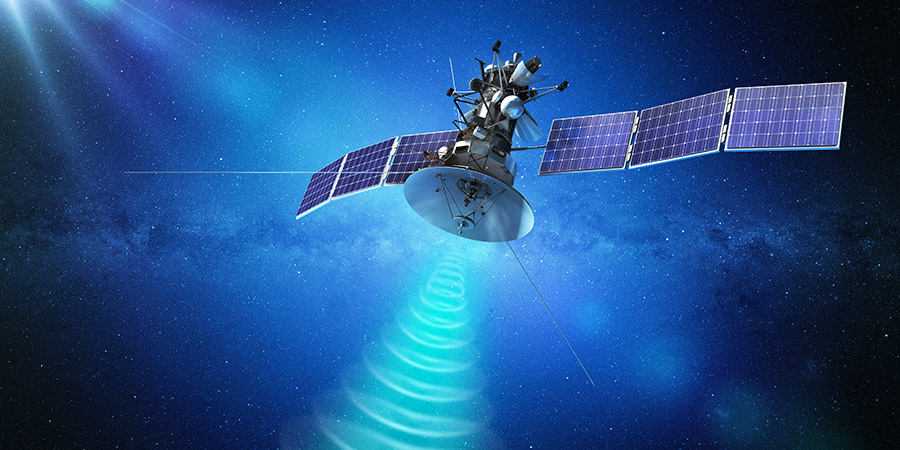Japan’s space sector, traditionally led by government initiatives, is now seeing increasing participation from private companies, including innovative startups, while also garnering the attention of telecom operators.
As Japan’s space industry shifts from being predominantly government-led to increasingly inclusive of private enterprises, telecom operators are strategically positioned to make significant contributions. They have recognized the potential of space-based technologies like satellite communications and are leveraging them to enrich their service portfolios and extend their market influence.
As Japan aims to significantly expand its space industry, telecom operators are expected to form strong partnerships with space ventures. This collaboration will integrate the latest advancements in AI, IoT, and other technologies, driving innovation and enabling operators to effectively meet the evolving needs of telecommunications consumers.
Ambitious USD 6.47 Billion Space Innovation Fund
Japan is positioning itself as a significant player in the global space industry and has announced the establishment of a JPY 1-trillion (USD 6.47 billion) fund, which aims to foster technological innovation.
Managed by the Japan Aerospace Exploration Agency (JAXA) over a decade, this initiative aims to propel Japan's space capabilities through partnerships with private-sector organizations and universities.
Set to commence operations in 2024, the space strategy fund will solicit expertise from the private sector to accelerate developments in key technological areas. These initiatives will be guided by the Committee on National Space Policy under the Cabinet Office, which finalized specific focus areas earlier this month.
The fund's initial projects include a JPY 95 billion endeavor to establish a satellite constellation-based communication network, a JPY 23 billion project for fuel-cell systems on lunar surfaces, and a JPY 15.5 billion initiative to enhance rocket launch technologies for increased frequency and cost-efficiency. In a bold move, the Japanese government allocated JPY 300 billion during the 2023 fiscal supplementary budget as an initial infusion into the fund, surpassing JAXA's annual budget for the same fiscal year.
Telecom Review Asia Exclusive Feature: Japan’s Smart City: Integrating Sustainability with Technological Advancement
Aligned with the Basic Plan on Space Policy, revised in the previous year, Japan aims to double its domestic space industry revenues from JPY 4 trillion in 2020 to JPY 8 trillion by the early
2030s. The space strategy fund stands as a pivotal program in achieving this ambitious goal, providing necessary long-term research planning opportunities for companies and universities.
Atsushi Uchida, a researcher at Mitsubishi Research Institute, emphasized the fund's potential to bolster Japan's space technology development, noting the critical role of sustained investment in overcoming the time-intensive nature of space technology advancements.
Amidst projections from Morgan Stanley indicating the global space industry could surpass USD 1 trillion by 2040, Japan faces stiff international competition, particularly from leaders like SpaceX in the United States and ambitious projects in China. The Japanese government's targets for the space strategy fund include increasing annual rocket launches to around 30 by the mid-2030s and fostering private-sector participation in lunar and Mars exploration projects by the early 2030s.
With Japan launching only two rockets last year compared to the United States' 108 and China's 68 launches in 2023, JAXA shoulders a significant responsibility in driving Japan's space ambitions forward. The agency plans to establish rigorous monitoring systems to track progress and ensure optimal outcomes from collaborations with selected private-sector entities and universities.
Latest Industry News: Japan Plans New Legislation to Boost Advanced Semiconductor Production
Satellite-to-Cellular Services Across Japan
Rakuten Mobile previously announced plans to introduce satellite-to-cellular services in Japan, with a targeted launch in 2026 in collaboration with AST SpaceMobile.
This initiative aims to revolutionize connectivity across Japan, particularly in remote and geographically challenging areas such as mountainous regions and isolated islands. These locations frequently experience natural disasters, underscoring the critical need for reliable communication channels unaffected by terrestrial infrastructure damage. Leveraging low Earth orbit (LEO) satellites, the service promises seamless mobile connectivity during emergencies, ensuring uninterrupted access to voice and video calls beyond traditional text messaging capabilities.
Rakuten Mobile and AST SpaceMobile's partnership, established in March 2020, focuses on deploying space-based mobile networks across Japan. In 2022, the successful launch of AST SpaceMobile's LEO test satellite, BlueWalker 3, marked a significant milestone with the world's first two-way voice calls conducted between Midland, Texas, and Tokyo using standard smartphones.
Furthermore, Rakuten Mobile has secured experimental test station licenses for mobile communication trials in Japan, highlighting their commitment to advancing this innovative telecommunications solution; while KDDI has partnered with SpaceX to bring satellite-to-cellular service to Japan, enhancing connectivity across the nation.
Interesting Read: Japan Prime Minister Leads International Effort for AI Regulation Framework
In another significant move, NTT DOCOMO, Inc. and Space Compass Corporation, along with Mizuho Bank Limited and the Development Bank of Japan Inc., have announced plans to invest USD 100 million in AALTO's Zephyr High Altitude Platform Station (HAPS). This investment will support the commercialization of connectivity and earth observation services using HAPS in Japan and across Asia.
SoftBank is also making strides by collaborating with OneWeb to deliver satellite communication services in Japan. Additionally, Japanese-native Infostellar plans to launch an APAC Ground Station Network for GSaaS by 2025, further bolstering the region’s satellite infrastructure.
Moreover, NTT, NTT DOCOMO, NTT Communications (NTT Com), and SKY Perfect JSAT are teaming up with Amazon's Project Kuiper to offer satellite connectivity services in Japan. These initiatives collectively demonstrate how Japanese telecom companies are leveraging advanced technologies to drive innovation and expand Japan's presence in the global space industry.
This transformation in Japan's space sector marks a moment whereby the synergy between government and private enterprises is poised to drive substantial advancements. The increasing involvement of private companies, especially in satellite communications, is not only broadening the industry's scope but also attracting telecom operators eager to capitalize on new technological frontiers.
Industry Insights: Japan’s Telecom and Pay-TV Services Revenue to Increase Through 2028
Also Read: Japan to Revive Tech and Semiconductor Competitiveness
Technology Pick: The Next Frontier For Space Exploration Involves The Utilization Of Humanoid Robots






